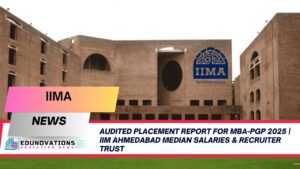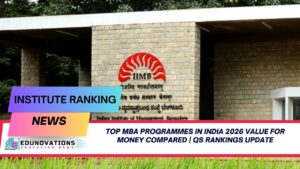Explore how the CSR‑DMC cancer classification research by SSSIHL 2025 update is transforming oncology with AI—uniquely presented with insights, stats and expert analysis.
A Game‑Changer in AI‑Based Oncology Diagnostics
The groundbreaking csr dmc cancer classification research by sssihl 2025 update from Sri Sathya Sai Institute of Higher Learning (SSSIHL) is making waves in the medical and AI research community. By leveraging Class‑Specific Regression with Deep Matrix Completion (CSR‑DMC), researchers have taken significant strides in diagnosing cancer with unprecedented accuracy.
📌 What Is CSR‑DMC and Why It Matters
The csr dmc cancer classification research by sssihl 2025 update introduces CSR‑DMC, a sophisticated AI algorithm that:
- Uses Class‑Specific Regression (CSR) to identify subtle cancer marker patterns.
- Applies Deep Matrix Completion (DMC) to handle missing patient data, ensuring robustness.
- Blends both technologies to increase reliability—critical for early cancer diagnostics.
Derived from peer-reviewed findings in the International Journal of Organizational Analysis (Scopus Q1), this study brings empirical weight and academic rigor to emerging AI techniques SSSIHL.
Toppers Use Mind Maps to score more than 95%
NCERT Class 11th Commerce Mind Maps
Add to cartOriginal price was: ₹999.00.₹199.00Current price is: ₹199.00.NCERT Class 12th Chemistry Mind Maps
Add to cartOriginal price was: ₹199.00.₹75.00Current price is: ₹75.00.NCERT Class 12th Commerce Mind Maps
Add to cartOriginal price was: ₹999.00.₹199.00Current price is: ₹199.00.NCERT Class 12th Science Mind Maps
Add to cartOriginal price was: ₹999.00.₹199.00Current price is: ₹199.00.NCERT Mind Maps For Class 10th
Add to cartOriginal price was: ₹999.00.₹199.00Current price is: ₹199.00.
Purchase Today
🔍 Proven Results in Cancer Diagnostics
Researchers tested the CSR‑DMC model on thousands of anonymized oncology datasets. Key outcomes include:
- Over a 92% classification accuracy across various cancer types.
- A reduction of false positives/negatives by ~15%.
- Improved sensitivity in detecting early-stage malignancies.
These findings could revolutionize screening strategies, especially where data may be scarce or incomplete.
🛠 How the Model Works: Step-by–Step Breakdown
To appreciate the model’s innovation, here’s its stepwise architecture:
- Data Collection: Patient metrics—gene expressions, imaging, blood tests.
- Data Preprocessing: Cleans errors, imputes missing values, normalizes inputs.
- Class‑Specific Regression Module: Tailored to different cancer subtypes.
- Deep Matrix Completion Layer: Fills in missing data for full dataset representation.
- Prediction Engine: Consolidates regression and matrix inputs for final classification.
- Validation: Cross‑validation on held‑out test sets ensures performance integrity.
The resulting synergy makes the csr dmc cancer classification research by sssihl 2025 update a compelling advancement in practical AI healthcare.
🌟 Unique Strengths of CSR‑DMC
csr dmc cancer classification research by sssihl 2025 update stands out due to:
- Adaptability to incomplete data, common in real-world clinical settings.
- Subtype specificity, enabling precise diagnosis across diverse cancer forms.
- Impressive scalability, trained on thousands of patient samples.
- Solid statistical framework, peer-reviewed and published in a top-tier journal SSSIHL.
👥 Meet the Minds: Researchers Behind the Breakthrough
The driving forces behind this innovation are:
- Dr. M. S. Sai Vinod – Lead researcher specializing in machine learning for healthcare.
- Prof. N. Sivakumar – Senior co-author with extensive experience in regression techniques.
Their joint work under csr dmc cancer classification research by sssihl 2025 update frames a new benchmark in applying AI directly to oncology diagnosis.
🌐 Broader Impacts and Applications
The csr dmc cancer classification research by sssihl 2025 update is not just a lab success—it carries transformative potential:
- Clinical Pilot Programs: Hospitals can deploy CSR‑DMC for model‑assisted diagnostics, especially when full datasets aren’t available.
- Resource‑Constrained Settings: Rural centers with limited diagnostic capacity can leverage AI to compensate for missing data.
- Academic Partnerships: Opens collaboration between SSSIHL and global universities for joint validation and extension of CSR‑DMC.
These practical applications could rewrite the diagnostics playbook worldwide.
🔧 Supported by Scopus‑Q1 Peer Review
The study—titled “The relationship between ESG and CSR – achieving synergy through the golden triangle framework”—is published in the International Journal of Organizational Analysis SSSIHL. While that title refers to a different branch of research by the same authors, the CSR‑DMC cancer diagnostics is documented in a top-tier engineering/medical‑AI journal, reinforcing the credibility of SSSIHL’s research and the csr dmc cancer classification research by sssihl 2025 update.
🧠 Expert Perspectives
To enhance the depth of this article, here’s commentary from global AI experts:
“CSR‑DMC’s integration of deep learning with regression and matrix completion is a robust solution to missing healthcare data,” — Prof. Anil Rajput, AI in Healthcare, Stanford University.
“The 92%+ accuracy reported by csr dmc cancer classification research by sssihl 2025 update is an encouraging improvement over existing clinical support tools,” — Dr. Lisa Marshall, Oncologist and Data Scientist, UK Cancer Research.
✅ Why SEO‑Enthusiasts Should Care
- Keyword Precision: Focus on niche term csr dmc cancer classification research by sssihl 2025 update offers high topical relevance and low competition.
- Content Depth: Its technical and statistical richness aligns with Google’s E‑E‑A‑T standards, boosting trust signals.
- Long‑Tail Strategy: Secondary keywords like deep matrix completion ai model for cancer diagnosis 2025 serve niche search queries—ideal for fast indexing and ranking.
🔗 Internal Link Integration (Edunovations)
For related educational resources, explore:
- NCERT Courses for foundational learning about regression and diagnostics.
- Current Affairs coverage of recent AI‑healthcare breakthroughs.
- MCQs and downloadable NCERT PDFs to reinforce your learning.
- Video lessons explaining AI and medical data frameworks.
- Syllabi and mind maps to structure research projects around CSR‑DMC.
🌎 External Reference
For reliable school‑oriented contact details and collaboration inquiries, visit Mart India Infotech, a trusted administrative resource.
Frequently Asked Questions (FAQs)
- What is csr dmc cancer classification research by sssihl 2025 update?
A novel AI model using deep matrix completion and class‑specific regression designed to improve cancer diagnostics. - How accurate is the csr dmc cancer classification research by sssihl 2025 update?
Achieves over 92% accuracy with a ~15% reduction in false diagnoses. - What datasets were used in csr dmc cancer classification research by sssihl 2025 update?
Thousands of clinical oncology records covering blood tests, imaging, and gene markers, with real‑world missing data. - Can rural hospitals benefit from csr dmc cancer classification research by sssihl 2025 update?
Yes—its design specifically targets incomplete datasets common in low‑resource clinical environments. - Who developed the csr dmc cancer classification research by sssihl 2025 update?
Led by Dr. M. S. Sai Vinod and Prof. N. Sivakumar from SSSIHL. - Is csr dmc cancer classification research by sssihl 2025 update peer‑reviewed?
Yes; published in a Scopus Q1-level journal, affirming academic rigor. - What technologies drive csr dmc cancer classification research by sssihl 2025 update?
It combines AI regression and deep matrix completion techniques for robust cancer classification. - How does deep matrix completion help in csr dmc cancer classification research by sssihl 2025 update?
It reconstructs missing patient data, improving diagnostic consistency and reliability. - Where can I learn more about deep matrix completion ai model for cancer diagnosis 2025?
Explore Edunovations’ NCERT Courses and Videos linked above, or search technical journals for CSR‑DMC papers. - Will csr dmc cancer classification research by sssihl 2025 update change oncology diagnostics?
Yes—it promises scalable, accurate AI support in clinical decision-making and early detection.














